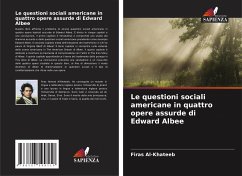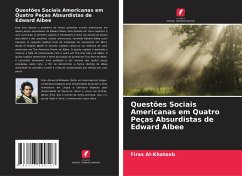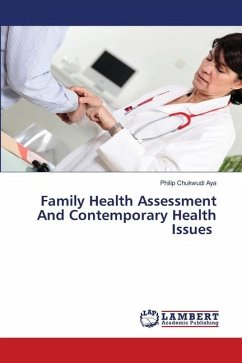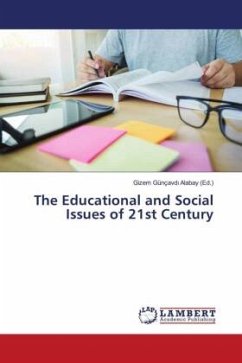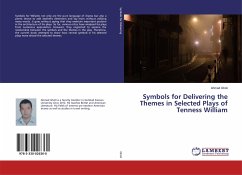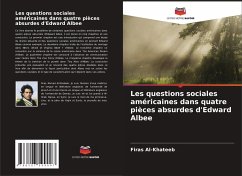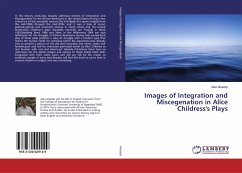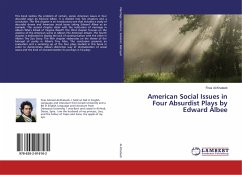
American Social Issues in Four Absurdist Plays by Edward Albee
Versandkostenfrei!
Versandfertig in 6-10 Tagen
33,99 €
inkl. MwSt.

PAYBACK Punkte
17 °P sammeln!
This book tackles the problem of certain, social, American issues in four absurdist plays by Edward Albee. it is divided into five chapters and a conclusion. The first chapter is an introductory one that includes a study of absurdist drama and American social issues taking Edward Albee as an example. The second chapter deals with the institution of marriage in Albee's Who's Afraid of Virginia Woolf? The third chapter focuses on the violence of the American scene in Albee's The American Dream. The fourth chapter is dedicated to display the lack of communication with the other in Albee's The Zoo...
This book tackles the problem of certain, social, American issues in four absurdist plays by Edward Albee. it is divided into five chapters and a conclusion. The first chapter is an introductory one that includes a study of absurdist drama and American social issues taking Edward Albee as an example. The second chapter deals with the institution of marriage in Albee's Who's Afraid of Virginia Woolf? The third chapter focuses on the violence of the American scene in Albee's The American Dream. The fourth chapter is dedicated to display the lack of communication with the other in Albee's The Zoo Story. The fifth chapter elaborates on the theme of the betrayal of purity in Albee's Tiny Alice. The conclusion presents an evaluation and a summing up of the four plays studied in this book in order to demonstrate Albee's distinctive way of dramatization of social issues and the kind of characterization he portrays in his plays.




